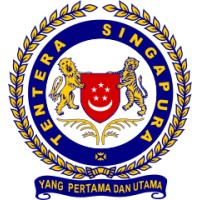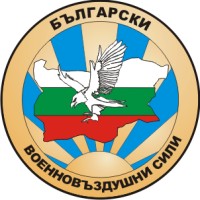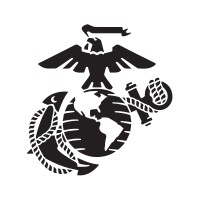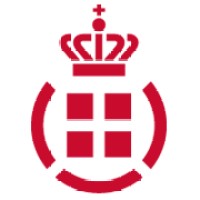
Singapore Armed Forces (SAF) Company Cyber Security Posture
mindef.gov.sgThe Singapore Armed Forces (SAF) is the military arm of the Total Defence of the Republic of Singapore; as well as the military component of the Ministry of Defence. The SAF has three services: the Singapore Army, the Republic of Singapore Air Force (RSAF) and the Republic of Singapore Navy (RSN). The SAF protects the interests, sovereignty and territorial integrity of Singapore from external threats. The SAF is to deter aggression, and should deterrence fail, to secure a swift and decisive victory. In peacetime, the SAF is to be ready and capable of conducting a spectrum of operations to protect our national interests and the well-being of Singapore's citizens.
SAF( Company Details
singapore-armed-forces-saf
3849 employees
14930
928
Armed Forces
mindef.gov.sg
Scan still pending
SIN_2444212
In-progress
Between 800 and 900
This score is AI-generated and less favored by cyber insurers, who prefer the TPRM score.
 SAF( Global Score
SAF( Global Score.png)

Singapore Armed Forces (SAF) Company Scoring based on AI Models
| Model Name | Date | Description | Current Score Difference | Score |
|---|---|---|---|---|
| AVERAGE-Industry | 03-12-2025 | This score represents the average cybersecurity rating of companies already scanned within the same industry. It provides a benchmark to compare an individual company's security posture against its industry peers. | N/A | Between 800 and 900 |
Singapore Armed Forces (SAF) Company Cyber Security News & History
| Entity | Type | Severity | Impact | Seen | Url ID | Details | View |
|---|---|---|---|---|---|---|---|
| Singapore Armed Forces (SAF) | Breach | 60 | 3 | 03/2017 | SIN04526722 | Link | |
Rankiteo Explanation : Attack with significant impact with internal employee data leaksDescription: Singapore Armed Forces (SAF) suffered a data breach in this incident, the training centre had uploaded pictures taken at the recruits' graduation ceremony to Facebook. However, there was a link in there that showed the troops' pictures and ID card numbers. When the error was discovered, BMTC promptly withdrew the link to the portraits. | |||||||
Singapore Armed Forces (SAF) Company Subsidiaries

The Singapore Armed Forces (SAF) is the military arm of the Total Defence of the Republic of Singapore; as well as the military component of the Ministry of Defence. The SAF has three services: the Singapore Army, the Republic of Singapore Air Force (RSAF) and the Republic of Singapore Navy (RSN). The SAF protects the interests, sovereignty and territorial integrity of Singapore from external threats. The SAF is to deter aggression, and should deterrence fail, to secure a swift and decisive victory. In peacetime, the SAF is to be ready and capable of conducting a spectrum of operations to protect our national interests and the well-being of Singapore's citizens.
Access Data Using Our API

Get company history
.png)
SAF( Cyber Security News
David Koh
Mr David Koh is the Commissioner of Cybersecurity and Chief Executive of the Cyber Security Agency (CSA) of Singapore.
Dragos signs MoU with Singapore’s Digital and Intelligence Service to boost global cybersecurity
Dragos and the Singapore Armed Forces' Digital and Intelligence Service (DIS) signed a Memorandum of Understanding (MOU) on Monday to develop advanced ...
Singapore’s military, industry jointly hone cyber defenses
Singapore's government and industry sectors are bolstering defenses against cyberattacks, with the Singapore Armed Forces (SAF) and other ...
DSTA and Thales Announce AI-Driven Co-Lab to Strengthen Singapore’s Defence Systems
The DSTA-Thales Joint Lab marks a strategic step in advancing next-generation defence technologies. By harnessing AI and advanced sensing technologies,
SAF’s digital service inaugurates two new commands to sharpen cyber-security edge
Singapore's armed forces on March 18 officially launched two new commands to better protect the country's “digital backbone” and critical information ...
DCCOM and SAFC4DC: A Strategic Move to Secure Singapore’s Digital Backbone
Singapore's armed forces officially launched two new commands on March 18, 2025, to safeguard the country's critical digital infrastructure.
Singapore’s defence sector sees more coordinated efforts in AI and cybersecurity
The Ministry of Defence (MINDEF) will partner with private companies to develop AI for autonomous flight operations, develop generative AI ( ...
Fact Sheet: Defence Cyber Command and SAF C4 & Digitalisation Command
The Defence Cyber Command (DCCOM) will defend MINDEF/SAF against cyber threats. By consolidating cybersecurity entities under a single Command, ...
Red Alpha appoints new CISO-in-residence amid talent gap
Red Alpha Cybersecurity appoints Mr Pang Tzer Yeu as CISO-in-Residence to address Singapore's shortage of nearly 4000 cybersecurity ...

SAF( Similar Companies

Singapore Army
OUR ARMY: READY, DECISIVE, RESPECTED Our Army is the bedrock of our nation's defence. We draw our strength from our Regulars, NSFs and Operationally Ready NSmen. We thrive on the support of our Families, Employers and fellow Singaporeans. Ready in peace, we are capable of a full spectrum of o

U.S. Air Force Reserve
The Air Force Reserve is an integral component of our Nation's air defense and military support network. Reservists bring knowledge, skills and expertise from their civilian experiences to support critical missions and training around the globe, while working alongside their Active Duty Air Force me

U.S. Navy Reserve
MISSION Throughout all 50 states and around the world, the Navy Reserve force delivers real-world capabilities and expertise to support the Navy mission — building a more lethal, warfighting culture focused on great power competition. VISION The Navy Reserve provides essential naval warfighting c

Bulgarian Air Force
ВВС са основен вид въоръжени сили, предназначени за участие в съвместни и самостоятелни операции, както в национален, така и в многонационален формат. ВВС гарантират въздушния суверенитет на Република България, като осъществяват наблюдение, охрана и отбрана на нейното въздушно пространство, изпълня

United States Marine Corps
The United States Marine Corps (USMC) is a branch of the United States Armed Forces responsible for providing power projection, using the mobility of the United States Navy, by Congressional mandate, to deliver rapidly, combined-arms task forces on land, at sea, and in the air. The U.S. Marine Corps

Forsvaret
Forsvaret er en af Danmarks største og mest komplekse offentlige institutioner med ansatte inden for mange forskellige faggrupper – både militære og civile. Forsvaret skal med militære midler kunne bidrage til løsning af konfliktforebyggende, fredsbevarende, fredsskabende, humanitære og andr

Frequently Asked Questions (FAQ) on Cybersecurity Incidents
SAF( CyberSecurity History Information
Total Incidents: According to Rankiteo, SAF( has faced 1 incidents in the past.
Incident Types: The types of cybersecurity incidents that have occurred include ['Breach'].
Total Financial Loss: The total financial loss from these incidents is estimated to be {total_financial_loss}.
Cybersecurity Posture: The company's overall cybersecurity posture is described as The Singapore Armed Forces (SAF) is the military arm of the Total Defence of the Republic of Singapore; as well as the military component of the Ministry of Defence. The SAF has three services: the Singapore Army, the Republic of Singapore Air Force (RSAF) and the Republic of Singapore Navy (RSN). The SAF protects the interests, sovereignty and territorial integrity of Singapore from external threats. The SAF is to deter aggression, and should deterrence fail, to secure a swift and decisive victory. In peacetime, the SAF is to be ready and capable of conducting a spectrum of operations to protect our national interests and the well-being of Singapore's citizens..
Detection and Response: The company detects and responds to cybersecurity incidents through {description_of_detection_and_response_process}.
Incident Details
Incident 1: Ransomware Attack
Title: {Incident_Title}
Description: {Brief_description_of_the_incident}
Date Detected: {Detection_Date}
Date Publicly Disclosed: {Disclosure_Date}
Date Resolved: {Resolution_Date}
Type: {Type_of_Attack}
Attack Vector: {Attack_Vector}
Vulnerability Exploited: {Vulnerability}
Threat Actor: {Threat_Actor}
Motivation: {Motivation}
Incident 2: Data Breach
Title: {Incident_Title}
Description: {Brief_description_of_the_incident}
Date Detected: {Detection_Date}
Date Publicly Disclosed: {Disclosure_Date}
Date Resolved: {Resolution_Date}
Type: {Type_of_Attack}
Attack Vector: {Attack_Vector}
Vulnerability Exploited: {Vulnerability}
Threat Actor: {Threat_Actor}
Motivation: {Motivation}
Common Attack Types: As of now, the company has not encountered any reported incidents involving common cyberattacks.
Identification of Attack Vectors: The company identifies the attack vectors used in incidents through {description_of_identification_process}.
Impact of the Incidents
Incident 1: Ransomware Attack
Financial Loss: {Financial_Loss}
Data Compromised: {Data_Compromised}
Systems Affected: {Systems_Affected}
Downtime: {Downtime}
Operational Impact: {Operational_Impact}
Conversion Rate Impact: {Conversion_Rate_Impact}
Revenue Loss: {Revenue_Loss}
Customer Complaints: {Customer_Complaints}
Brand Reputation Impact: {Brand_Reputation_Impact}
Legal Liabilities: {Legal_Liabilities}
Identity Theft Risk: {Identity_Theft_Risk}
Payment Information Risk: {Payment_Information_Risk}
Incident 2: Data Breach
Financial Loss: {Financial_Loss}
Data Compromised: {Data_Compromised}
Systems Affected: {Systems_Affected}
Downtime: {Downtime}
Operational Impact: {Operational_Impact}
Conversion Rate Impact: {Conversion_Rate_Impact}
Revenue Loss: {Revenue_Loss}
Customer Complaints: {Customer_Complaints}
Brand Reputation Impact: {Brand_Reputation_Impact}
Legal Liabilities: {Legal_Liabilities}
Identity Theft Risk: {Identity_Theft_Risk}
Payment Information Risk: {Payment_Information_Risk}
Average Financial Loss: The average financial loss per incident is {average_financial_loss}.
Commonly Compromised Data Types: The types of data most commonly compromised in incidents are {list_of_commonly_compromised_data_types}.
Incident 1: Ransomware Attack
Entity Name: {Entity_Name}
Entity Type: {Entity_Type}
Industry: {Industry}
Location: {Location}
Size: {Size}
Customers Affected: {Customers_Affected}
Incident 2: Data Breach
Entity Name: {Entity_Name}
Entity Type: {Entity_Type}
Industry: {Industry}
Location: {Location}
Size: {Size}
Customers Affected: {Customers_Affected}
Response to the Incidents
Incident 1: Ransomware Attack
Incident Response Plan Activated: {Yes/No}
Third Party Assistance: {Yes/No}
Law Enforcement Notified: {Yes/No}
Containment Measures: {Containment_Measures}
Remediation Measures: {Remediation_Measures}
Recovery Measures: {Recovery_Measures}
Communication Strategy: {Communication_Strategy}
Adaptive Behavioral WAF: {Adaptive_Behavioral_WAF}
On-Demand Scrubbing Services: {On_Demand_Scrubbing_Services}
Network Segmentation: {Network_Segmentation}
Enhanced Monitoring: {Enhanced_Monitoring}
Incident 2: Data Breach
Incident Response Plan Activated: {Yes/No}
Third Party Assistance: {Yes/No}
Law Enforcement Notified: {Yes/No}
Containment Measures: {Containment_Measures}
Remediation Measures: {Remediation_Measures}
Recovery Measures: {Recovery_Measures}
Communication Strategy: {Communication_Strategy}
Adaptive Behavioral WAF: {Adaptive_Behavioral_WAF}
On-Demand Scrubbing Services: {On_Demand_Scrubbing_Services}
Network Segmentation: {Network_Segmentation}
Enhanced Monitoring: {Enhanced_Monitoring}
Incident Response Plan: The company's incident response plan is described as {description_of_incident_response_plan}.
Third-Party Assistance: The company involves third-party assistance in incident response through {description_of_third_party_involvement}.
Data Breach Information
Incident 2: Data Breach
Type of Data Compromised: {Type_of_Data}
Number of Records Exposed: {Number_of_Records}
Sensitivity of Data: {Sensitivity_of_Data}
Data Exfiltration: {Yes/No}
Data Encryption: {Yes/No}
File Types Exposed: {File_Types}
Personally Identifiable Information: {Yes/No}
Prevention of Data Exfiltration: The company takes the following measures to prevent data exfiltration: {description_of_prevention_measures}.
Handling of PII Incidents: The company handles incidents involving personally identifiable information (PII) through {description_of_handling_process}.
Ransomware Information
Incident 1: Ransomware Attack
Ransom Demanded: {Ransom_Amount}
Ransom Paid: {Ransom_Paid}
Ransomware Strain: {Ransomware_Strain}
Data Encryption: {Yes/No}
Data Exfiltration: {Yes/No}
Ransom Payment Policy: The company's policy on paying ransoms in ransomware incidents is described as {description_of_ransom_payment_policy}.
Data Recovery from Ransomware: The company recovers data encrypted by ransomware through {description_of_data_recovery_process}.
Regulatory Compliance
Incident 1: Ransomware Attack
Regulations Violated: {Regulations_Violated}
Fines Imposed: {Fines_Imposed}
Legal Actions: {Legal_Actions}
Regulatory Notifications: {Regulatory_Notifications}
Incident 2: Data Breach
Regulations Violated: {Regulations_Violated}
Fines Imposed: {Fines_Imposed}
Legal Actions: {Legal_Actions}
Regulatory Notifications: {Regulatory_Notifications}
Regulatory Frameworks: The company complies with the following regulatory frameworks regarding cybersecurity: {list_of_regulatory_frameworks}.
Ensuring Regulatory Compliance: The company ensures compliance with regulatory requirements through {description_of_compliance_measures}.
Lessons Learned and Recommendations
Incident 1: Ransomware Attack
Lessons Learned: {Lessons_Learned}
Incident 2: Data Breach
Lessons Learned: {Lessons_Learned}
Incident 1: Ransomware Attack
Recommendations: {Recommendations}
Incident 2: Data Breach
Recommendations: {Recommendations}
Key Lessons Learned: The key lessons learned from past incidents are {list_of_key_lessons_learned}.
Implemented Recommendations: The company has implemented the following recommendations to improve cybersecurity: {list_of_implemented_recommendations}.
References
Additional Resources: Stakeholders can find additional resources on cybersecurity best practices at {list_of_additional_resources}.
Investigation Status
Incident 1: Ransomware Attack
Investigation Status: {Investigation_Status}
Incident 2: Data Breach
Investigation Status: {Investigation_Status}
Communication of Investigation Status: The company communicates the status of incident investigations to stakeholders through {description_of_communication_process}.
Stakeholder and Customer Advisories
Incident 1: Ransomware Attack
Stakeholder Advisories: {Stakeholder_Advisories}
Customer Advisories: {Customer_Advisories}
Incident 2: Data Breach
Stakeholder Advisories: {Stakeholder_Advisories}
Customer Advisories: {Customer_Advisories}
Advisories Provided: The company provides the following advisories to stakeholders and customers following an incident: {description_of_advisories_provided}.
Initial Access Broker
Incident 1: Ransomware Attack
Entry Point: {Entry_Point}
Reconnaissance Period: {Reconnaissance_Period}
Backdoors Established: {Backdoors_Established}
High Value Targets: {High_Value_Targets}
Data Sold on Dark Web: {Yes/No}
Incident 2: Data Breach
Entry Point: {Entry_Point}
Reconnaissance Period: {Reconnaissance_Period}
Backdoors Established: {Backdoors_Established}
High Value Targets: {High_Value_Targets}
Data Sold on Dark Web: {Yes/No}
Monitoring and Mitigation of Initial Access Brokers: The company monitors and mitigates the activities of initial access brokers through {description_of_monitoring_and_mitigation_measures}.
Post-Incident Analysis
Incident 1: Ransomware Attack
Root Causes: {Root_Causes}
Corrective Actions: {Corrective_Actions}
Incident 2: Data Breach
Root Causes: {Root_Causes}
Corrective Actions: {Corrective_Actions}
Post-Incident Analysis Process: The company's process for conducting post-incident analysis is described as {description_of_post_incident_analysis_process}.
Corrective Actions Taken: The company has taken the following corrective actions based on post-incident analysis: {list_of_corrective_actions_taken}.
Additional Questions
General Information
Ransom Payment History: The company has {paid/not_paid} ransoms in the past.
Last Ransom Demanded: The amount of the last ransom demanded was {last_ransom_amount}.
Last Attacking Group: The attacking group in the last incident was {last_attacking_group}.
Incident Details
Most Recent Incident Detected: The most recent incident detected was on {most_recent_incident_detected_date}.
Most Recent Incident Publicly Disclosed: The most recent incident publicly disclosed was on {most_recent_incident_publicly_disclosed_date}.
Most Recent Incident Resolved: The most recent incident resolved was on {most_recent_incident_resolved_date}.
Impact of the Incidents
Highest Financial Loss: The highest financial loss from an incident was {highest_financial_loss}.
Most Significant Data Compromised: The most significant data compromised in an incident was {most_significant_data_compromised}.
Most Significant System Affected: The most significant system affected in an incident was {most_significant_system_affected}.
Response to the Incidents
Third-Party Assistance in Most Recent Incident: The third-party assistance involved in the most recent incident was {third_party_assistance_in_most_recent_incident}.
Containment Measures in Most Recent Incident: The containment measures taken in the most recent incident were {containment_measures_in_most_recent_incident}.
Data Breach Information
Most Sensitive Data Compromised: The most sensitive data compromised in a breach was {most_sensitive_data_compromised}.
Number of Records Exposed: The number of records exposed in the most significant breach was {number_of_records_exposed}.
Ransomware Information
Highest Ransom Demanded: The highest ransom demanded in a ransomware incident was {highest_ransom_demanded}.
Highest Ransom Paid: The highest ransom paid in a ransomware incident was {highest_ransom_paid}.
Regulatory Compliance
Highest Fine Imposed: The highest fine imposed for a regulatory violation was {highest_fine_imposed}.
Most Significant Legal Action: The most significant legal action taken for a regulatory violation was {most_significant_legal_action}.
Lessons Learned and Recommendations
Most Significant Lesson Learned: The most significant lesson learned from past incidents was {most_significant_lesson_learned}.
Most Significant Recommendation Implemented: The most significant recommendation implemented to improve cybersecurity was {most_significant_recommendation_implemented}.
References
Most Recent Source: The most recent source of information about an incident is {most_recent_source}.
Most Recent URL for Additional Resources: The most recent URL for additional resources on cybersecurity best practices is {most_recent_url}.
Investigation Status
Current Status of Most Recent Investigation: The current status of the most recent investigation is {current_status_of_most_recent_investigation}.
Stakeholder and Customer Advisories
Most Recent Stakeholder Advisory: The most recent stakeholder advisory issued was {most_recent_stakeholder_advisory}.
Most Recent Customer Advisory: The most recent customer advisory issued was {most_recent_customer_advisory}.
Initial Access Broker
Most Recent Entry Point: The most recent entry point used by an initial access broker was {most_recent_entry_point}.
Most Recent Reconnaissance Period: The most recent reconnaissance period for an incident was {most_recent_reconnaissance_period}.
Post-Incident Analysis
Most Significant Root Cause: The most significant root cause identified in post-incident analysis was {most_significant_root_cause}.
Most Significant Corrective Action: The most significant corrective action taken based on post-incident analysis was {most_significant_corrective_action}.
What Do We Measure?
















Every week, Rankiteo analyzes billions of signals to give organizations a sharper, faster view of emerging risks. With deeper, more actionable intelligence at their fingertips, security teams can outpace threat actors, respond instantly to Zero-Day attacks, and dramatically shrink their risk exposure window.
These are some of the factors we use to calculate the overall score:
Identify exposed access points, detect misconfigured SSL certificates, and uncover vulnerabilities across the network infrastructure.
Gain visibility into the software components used within an organization to detect vulnerabilities, manage risk, and ensure supply chain security.
Monitor and manage all IT assets and their configurations to ensure accurate, real-time visibility across the company's technology environment.
Leverage real-time insights on active threats, malware campaigns, and emerging vulnerabilities to proactively defend against evolving cyberattacks.




